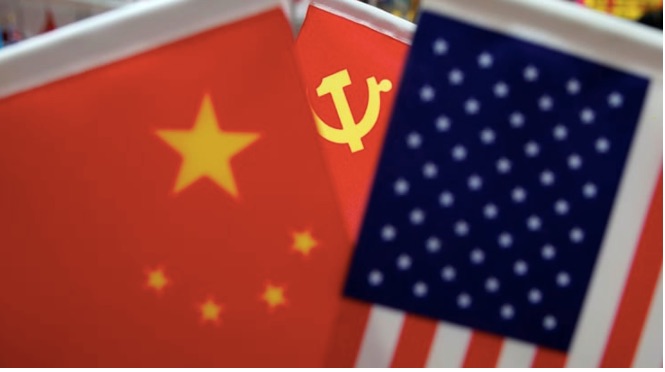
Labor Productivity: From the Bottom Up and Top Down
February 7, 2024
Girl Scout Cookies’ McRib Strategy
February 9, 2024Economists usually say “No” to tariffs. One reason is the people that pay.
In a Chicago Booth survey, a majority agreed that American households will pay for US China trade war import tariffs:

A new study confirms what economists expected.
US China Trade War
In a 2019 econlife post, we saw the unintended consequences of the Trump tariffs. Whereas China imported fewer soybeans from the U.S., it bought more from Brazil and Argentina. Similarly, U.S. lobster exports to China were down 70%. But Canada’s have doubled.
At the beginning of 2018, China’s 8% tariff targeted everyone. By July though, as U.S. tariffs went up, other countries saw them go down. Ranging from cosmetics to fish, U.S. goods were slapped with a Chinese tariff that averaged 20%. Meanwhile competing exporters enjoyed a lower rate that was closer to 6.7%.
Now a new study shows a triple hit. While U.S. employment minimally benefited from tariffs on Chinese imports, it suffered significantly from the Chinese retaliation. In addition, the U.S. became less competitive when the Trump tariffs elevated input costs. As a result, a world that welcomed trade was suddenly hit by U.S. tariffs that popped from 3.1 percent to 21 percent. Responding, Chinese tariffs went up a whopping 13% from 8% to 21.8%.
Geographically extending beyond agriculture, the tariff exposure was widespread:
 We should note that PIIE (Peterson Institute for International Economics) recorded a 16 percent increase in U.S. farm exports to China between 2021 and 2022. Far lower than the target, it still was, compared to all else, an increase.
We should note that PIIE (Peterson Institute for International Economics) recorded a 16 percent increase in U.S. farm exports to China between 2021 and 2022. Far lower than the target, it still was, compared to all else, an increase.
Our Bottom Line: Regressive Taxes
A tax can be proportional, progressive, or regressive. For proportional taxes, the rates are the same for everyone while with a progressive tax, the more affluent have a higher percent. So yes, with proportional taxes, higher amounts require that more taxes be paid but the percent for all prices and income levels is the same. By contrast, not only do progressive taxes require that those with more pay more, but also the percents are higher.
As a regressive tax, tariffs fall in our third bucket. With a regressive tax, because the amount of the tax usually is the same for everyone, those with less wind up paying a higher proportion of their income. Then, making it worse, the US China trade war disproportionally hit lower priced goods. Walmart, for example announced price hikes.
Returning to where we began, when economists say US households pay for tariffs, they mean you, me, and the Walmart shopper.
My sources and more: I always look forward to my Axios Macro newsletter email and was not disappointed today when it alerted me about the Autor et al paper. Next, this PIIE update on U.S. exports to China was the perfect complement as was the Booth survey and our 2020 post. Then finally, this article describes the regressive impact on Walmart shoppers. (Please note that several of today’s sentences were in a previous econlife post.)
![econlifelogotrademarkedwebsitelogo[1]](/wp-content/uploads/2024/05/econlifelogotrademarkedwebsitelogo1.png#100878)




